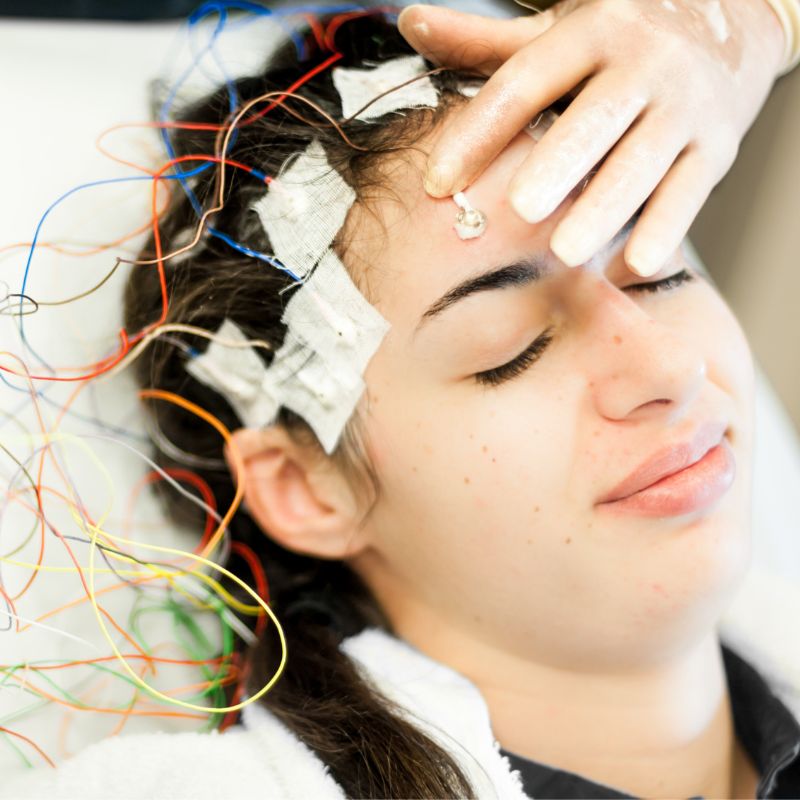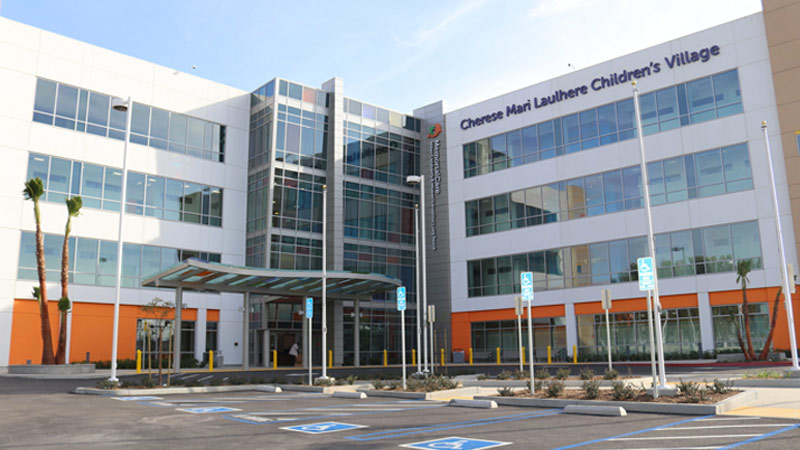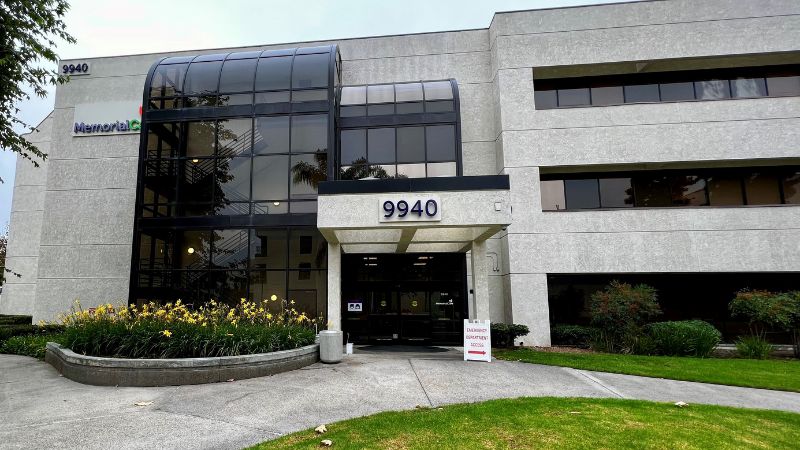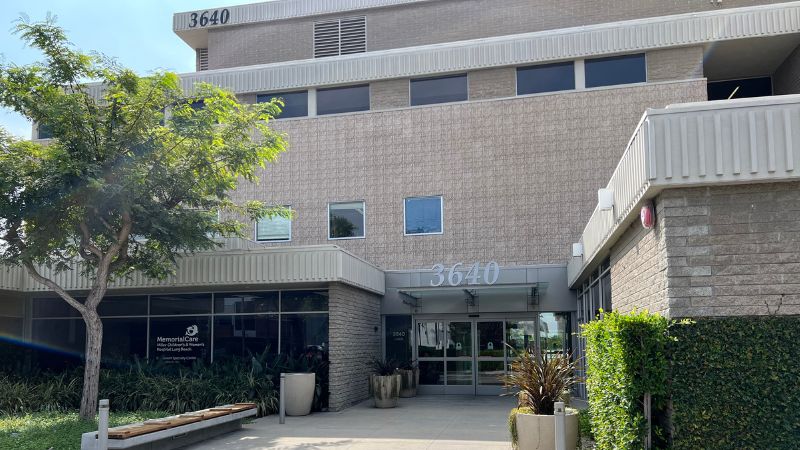The Neurology Center at MemorialCare Miller Children’s & Women's Hospital Long Beach provides a multi-disciplinary approach for consultation, diagnostic testing and medical management of children with developmental conditions and neurological disorders. The Neurology Center has an expert neurology care team that treats children of all ages, from birth through 21 years, and continues treatment and care into adulthood. Patients receive a comprehensive care plan that manages a child’s symptoms from diagnosis through follow-up care, often working closely with other board-certified pediatric sub-specialists, such as neurosurgeons and physiatrists.
Our pediatric neurologists complete extensive clinical evaluations, which may include diagnostic testing and neurological procedures, to help diagnose and treat various neurological conditions, such as epilepsy, migraines, attention deficit disorder (ADD) and Guillain-Barré syndrome. Our pediatric neurologists collaborate with neurosurgeons and hematologist/oncologists to create a leading treatment plans for children with brain tumors.
Clinical Evaluation
Patients receive a thorough clinical evaluation when they visit the Neurology Center to ensure accurate diagnosis of neurologic conditions and help to prescribe a comprehensive treatment plan.
EEG
An electroencephalogram (EEG) is a test that helps diagnose neurological disorders such as epilepsy and measures and records the electrical activity of the brain. The patient will lie in a bed or reclining chair while an EEG technician applies electrodes on the patient’s scalp. Recording of brain activity will last between 20-40 minutes and the patient is required to sit still while doing certain activities, such as breathing deeply or looking at a flashlight. The EEG test is usually performed in the Imaging Center. The EEG report is then sent back to the child’s neurologist for interpretation.
MRI
Magnetic resonance imaging (MRI) is a non-invasive test that helps diagnose epilepsy, brain tumors, multiple sclerosis and neurological disorders. An MRI uses magnetic field and radio wave energy to produce detailed pictures of organs, such as the brain. This technique, usually lasting 10 - 30 minutes, allows neurologists to better evaluate the patient and certain disorders that may not be possible with a standard x-ray. MRI procedures are typically done in the Imaging Center.
Lumbar Puncture
A lumbar puncture, also known as a spinal tap, is used to help diagnose multiple sclerosis, Guillain-Barré syndrome, meningitis and other diseases of the brain and spinal cord. The procedure, lasting 15 minutes, is done while lying down on the patient’s side or leaning forward on a table. This is to help widen the spaces between the bones of the lower spine. The neurologist, along with a sedation team, will introduce anesthesia, insert a needle and collect a small amount of cerebrospinal fluid (CSF) which will be sent to pathology to be tested. Parents are encouraged to be next to their child during the test.
Treatments
We provide a wide range of treatments for neurological disorders, including medication, surgery, radiation therapy and chemotherapy.
Medication
The type of medication prescribed for children with a neurological disorder depends on their condition and health history. The neurologist, working with other pediatric specialists, will determine the right medication for the child. To provide full comprehensive care, behavioral management and educational services are used in conjunction with medication. Every medication prescribed has a certain purpose:
- Helps children with attention deficit disorder (ADD) concentrate
- Helps block antibodies that are attacking the immune system in children with Guillain-Barré syndrome
- Controls seizures in patients with epilepsy
- Helps manage behavior
- Provides enhanced movement for children with cerebral palsy
Surgery
If surgery is a viable option to manage or treat a neurological disorder, the Neurology Center refers the patient and family to the Neurosurgery Center where preparation for the surgical procedure and the surgical procedure is performed. Brain mapping techniques are used by our pediatric neurosurgeons to operate with precision, and ensure a quicker recovery time. After the surgical procedure, care will be transferred back to the neurology care team to continue follow-up appointments and ensure the child is healthy and recovering.
Brain Tumor Treatments
Pediatric neurologists also work closely with pediatric hematologist/oncologists and pediatric neurosurgeons to remove and treat brain tumors.
Tumor Treatment Preparation
Our pediatric neurologists and care team work closely with neurosurgeons to remove brain tumors and collaborate with pediatric hematologists/oncologists to provide treatment and follow-up care. To diagnose a brain tumor, pediatric neurosurgery and oncology work with the neurologist and child to run tests such as brain scans. Neurologists perform a thorough neurological exam and may order an MRI. Treatment of the brain tumor depends on the type, its location in the brain and the child’s age and health condition. We offer three cutting-edge treatment options for brain tumors. In each treatment, the care team will work closely with other pediatric specialists to provide personalized, comprehensive care.
If surgical removal of the tumor is a viable option, the neurosurgeon will remove the tumor in the Surgical Center in close collaboration with pediatric hematologist/oncologists and neurologists. This procedure is done to remove all or most of the tumor. After the procedure, the neurology team will continue follow-up appointments to ensure the child doesn’t have great neurological side effects of treatment.
Radiation uses x-rays to destroy tumor cells and is often used with chemotherapy. This is done when surgery is not possible. Pediatric neurologists provide consult to ensure that the child’s neurological system isn’t being harmed during this treatment.
Chemotherapy, often paired with radiation therapy, is used to kill cancer cells with drugs. Chemotherapy drugs can be taken orally or introduced intravenously. When chemotherapy is needed for an extended period of time, neurologists can give consult on the effects chemotherapy is having on the child’s neurological system.
The collaborative care between the hematology/oncology, neurosurgery and neurology care teams provides comprehensive, multi-disciplinary follow-up care that lasts well beyond treatment and throughout the young patient’s entire journey.
Your Care Team
The Neurology Center care team provides overall management and health care coordination for the child’s special medical needs.
Providers



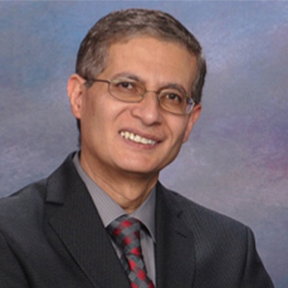


Other Team Members
The clinical nurse specialist provides communication among the child, family, primary care physician, neurology team and others involved in the care of the child. The nurse also provides any authorizations and medical information to any other care centers that will be caring for the patient. The nurse specialist also will educate all those involved in the child’s care.
Child life specialists or assistants can help your child better understand his or her condition and treatment while making him or her feel more comfortable during their stay or visit to Miller Children’s.

